#project: transatlantic
Explore tagged Tumblr posts
Text
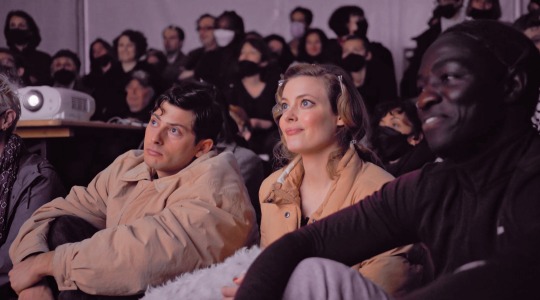


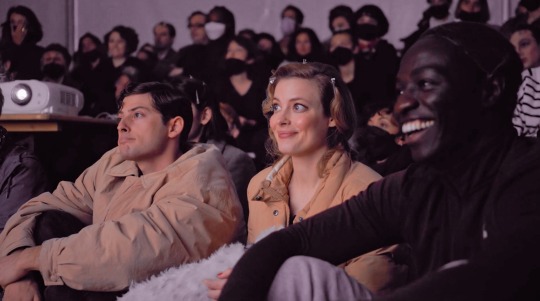
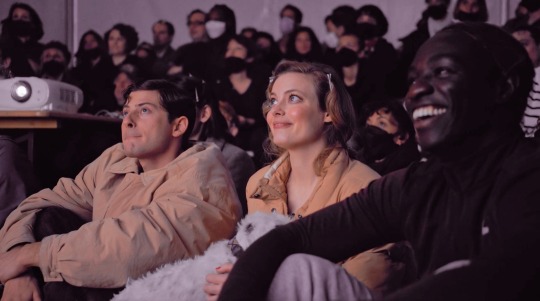


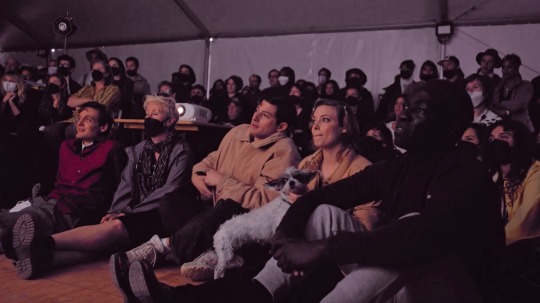
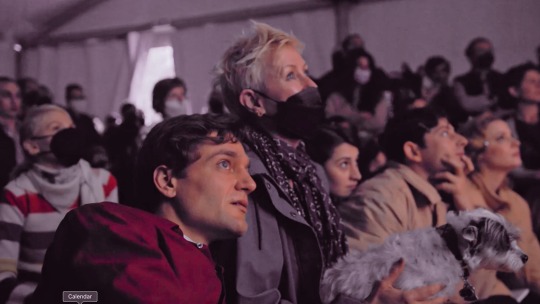
Gillian, Ralph, Amit, Justine, and Lucas during the Making Transatlantic Netflix featurette
#I love how they are passing the actor dog around#he’s so fucking cute#transatlantic cast#gillian jacobs#ralph amoussou#amit rahav#justine seymour#lucas englander#netflix transatlantic#project: transatlantic#transatlantic netflix
34 notes
·
View notes
Text

dumb comic I put too much time n thought into
#more out of context rp shenanigans#i drew this months ago lol#i should draw everything thru noirs pov#not tru pov but you know what i mean#idk why i headcanon so many of the seven used to have mullets#projection I fear#transatlantic mfs#the boys#the boys fanart#my art#the deep#translucent#black noir#queen maeve
18 notes
·
View notes
Note
For some reason I always imagine cytherea and mercymorn to both have either a southern accent or transatlantic accent depending on the scene. (Gideon sounds like me because I’m a poor little kicked puppy that wishes she had muscles) (I’m also gay)
incredible thank you for sharing.... i LOVE accent headcanons, southern accent Cytherea especially has me like 😳
#ask#anon#i also love projecting onto gideon nav ❤️ anon we are like brothers#transatlantic mercymorn... so inspired
9 notes
·
View notes
Text
Me vs the varian fry papers at Columbia (they are not digitized)
3 notes
·
View notes
Text
Well folks, it seems this project has been overwhelmingly approved by the public, so we'll start work immediately! We expect to be done by 2035 (based purely on vibes and no actual data), and the Irish Sea crossing will be open well before then. Assuming no unforseen complications arise, anyways.
The Transatlantic Railway, part 7
We've finished all of our public consultations, and now we have prepared the final presentation to obtain the project's approval. Please review the slides carefully before you come to a decision. Whatever happens, thank you all for taking part in this project – your contributions are just as vital as from those who will actually build the bridge. Although, as our estimates suggest that this project will completely eliminate unemployment in the UK, US, and Ireland, it's quite likely you'll have the opportunity to work on the bridge's eventual construction.








With that, we now have the final poll of this project:
If you're curious, here are some citations:
Cost of the bridge: estimated based on looking at the cost per kilometer of like two bridges on wikipedia, multiplying by the length of our bridge, and then taking order of magnitude estimates
And for the US federal budget (you can hover over for dollar amounts, click on each box to see that department's spending breakdown):
#network rail#network rail polls#transatlantic railway#it's not like we ignored any major aspects of the ocean when making this project#3 kilometer high pillars? why would we need those? it's just a bridge over some water; it's not that deep
26 notes
·
View notes
Text
GETTING CAUGHT IN THE MOMENT… LIPSTICK ON YOUR FACE
— alastor + lucifer + vox getting caught with lipstick stains all over them…
— generally gn!reader. guys can wear lipstick too smh
hehe i got a new lip tint (˶‾᷄ ⁻̫ ‾᷅˵) maybe alastor’s part is a little self-projected

— alastor
alastor himself isn’t one for physical affection. in fact, the thought itself makes him feel dirty. someone else’s skin against his… eugh…
though, when it came to you, he couldn’t keep his hands to himself; hands clawing and playing with your hair, wrapping his arms around your neck, pinching your cute cheeks, holding your hand… it’s almost as if he’d double-die without you near!
and the only thing he’d enjoy more than that would be having his affection reciprocated; interlocking your arm with his, a surprise hug from behind, a kiss on the cheek, they are all more than appreciated! especially the thing about kissing…
a kiss from you is simply just exhilarating. the suddenness yet sweetness of it, it’s truly the purest form of love, regardless of if it’s familial, romantic, or platonic— it’s the purest expression of your love for another person.
so, just imagine alastor’s reaction to your new lipstick, strawberry red to give your lips a glossy color, yet still light enough to appear natural. the pretty hue of red complimenting your face features perfectly by giving it the color it needs as to not appear pale.
absolutely gorgeous. so confusing how a simple amount of color could make you look as if you were an angel from heaven itself. you quite literally took his breath away from just applying a new lipstick…
at some point, alastor had reached some sort of limit when he finally caved into his inner desires, bringing you to a secluded place in the hotel, his hands moving to your hips and hair.
he couldn’t wait any longer to place his lips on your’s, your lipstick smearing all over his thin lips. kissing him from his cheeks to his jawline, leaving light pink stains all over his skin.
he groaned at the feeling of wet lipstick all over his face, and at the same time reveled in the ways you are telling everyone that the only one who could see the radio demon in such a needy and doe-like state would be you; he’d be yours to fool around with, and yours to do however you’d see fit. just as you are his— no one else’s. the smeared lipstick on the side of your lips should send that as a statement enough to whatever lowlife hooligan would even attempt to sweep you off your feet.
when the two of you had returned, it was a strange sight to say the least… alastor’s face and jaw covered with pink lips, and you with your lipstick smudged and smeared off your lips, instead all over you neck.
“well, uh… you two look like ‘ya had lot’sa fun…” angel said monotonously, awkwardly trying to keep up conversation. “ohh, most certainly!” alastor grinned, his transatlantic accent popping through the radio static.
he knows he could’ve wiped it off… he has a handkerchief in his back pocket, he could’ve easily saved himself that awkward conversation.
but, he didn’t.
could you blame him? he wants all of hell to know that both you and him off-limits for good.

— lucifer
when many imagine the king of hell, it’s hard to think he’d be a social piranha. the same case had gone for you.
who knew lucifer was still as pure of heart as he was during his time in heaven? and who knew he’d fall for someone so easily after the sudden disappearance of his wife?
when he saw you, it was practically love at first sight! your big eyes, your shiny hair, and those big pretty lips of yours that he just wanted to kiss so badly…
he listened carefully as charlie introduced you to him, trying to remember every detail about you and every feature on your face, stuttering over his words once it was time to speak for himself.
and somehow, despite his meekness towards you and your awkwardness whenever he was around, you two ended up in a relationship— with the help of vaggie and charlie’s meddling in pushing you two together.
the two of you loved each other, of course… but it was always hard to express. the only way lucifer knew how to show his love was through his presence and gifts. he wasn’t hell’s greatest kisser, but he tries.
and, today— it was your 5 month anniversary… quite a long time, the hotel’s been good so far, no major threats other than one of cherri bomb’s occasional explosions. and because of how long it’s been, you decided to do something a little special… put on some relatively expensive clothes and make-up your face a little bit.
when lucifer saw you all dolled up, he was honestly a little stunned. lips as red as an apple, hair as soft as silk, the words were stuck in his mouth. “w- er- wow..! i’m not dressed up or anything— agh, this is awkward..” lucifer muttered. “hey, it’s ok… this was a surprise for you, y’know?” you said, comforting him slightly.
“you look… stunning today” he smiled, carefully putting down his anniversary present for you on his work desk, still wrapped in a red ribbon. he made his way to you, hands making their way to your cheeks to softly cup them as he gently leaned into you for a kiss.
he released a breath he didn’t know he had been holding as you kissed his face all over, as if healing the wounds of his past with his present. his banishment into hell, lilith’s abandonment, they all didn’t matter anymore, you are the present and the future.
he wrapped his arms around your waist in a hug as he kissed your forehead, the residual lipstick from his lips smeared onto you.
lucifer laughed awkwardly before using his finger to carefully rub off the pink stains on your forehead. “haha… c’mon, i got a dinner reservation in the lust ring tonight…” he laughed, interlocking his arm with yours.
“don’t you wanna take off that lipstick on your face first?” you raised an eyebrow at him. “i mean… i dont minddd… so, it’s only if you wanna take if off” his eyes wandered, his cheeks growing flustered “hmm… nah. i want everyone to know you belong to me now.” you grinned mischievously.
and when the two of you walked out of the hotel lobby, charlie went to wish you a safe trip and happy anniversary before she noticed the stains on her dad’s face. “err… dad..? you gotta a little something there…” charlie muttered as she pointed all over his face. “ah..? yeah, i know” he laughed it off, proudly showing off to hell how hopelessly devoted he is to you.

— vox
vox was a busy man. from having many public appearances, to coming up with new ideas for voxtek, to putting out valentino’s temper tantrums, he barely had the time for romance.
barely. he loved you, truly. he keeps you dear to his heart, no matter how busy he’d be, vox would still make time for you late at night.
everyone had known you, why wouldn’t they? you’re the partner of one of the most influential overlords in hell, that’s a feat that is amazing to accomplish, dating vox in itself has made you into a sort of local celebrity; causing you to be invited to many galas, parties, and occasional raves.
and tonight happened to be the night of one of those parties. zestial had invited you to a formal dinner party, an all star guest list filled by many of the goetic princes, various overlords in hell, and other local hellborns such as verosika mayday.
“please, voxxx? just this once, it’s only like 3 hours!” you grumble as your apply a coat of ruby red over your lips, checking your appearance in the bathroom mirror. “i can’t.. i have a 5:00 with val and velvette, then after that, a board meeting about new gadgets to release…” vox groaned, already pissed about the day ahead.
“fine then, your loss.” you pouted, rolling your eyes as you left the bathroom and into the bedroom. “holy shit…” vox sighed out. “you look… really good, my love.” he walked over to you, his hands moving to your body, outlining the clothes’ stitching as he recognized it to be the one he had custom-made for you.
your hands rested on vox’s shoulders, forcibly making him lean over a bit before leaving various kiss stains all over his screen.
vox visibly tensed as his screen started glowing a bright teal, showing his clear embarrassment as pink smudges fogged his screen.
his breath heaved as his hands moved all around your body, desperate to find some kind of relief to his pent-up stress.
ending your kiss attack all too soon on his lips, you pulled away, your lips slightly pale now as you grinned at him. “spend the day looking like that and i’ll give you more after work” you winked, taking your belongings and leaving out the door, leaving a flustered vox in your bedroom, covered with lipstick stains.
“vox… the fuck is going on with your face?” velvette snarled. “it looks as if you got fucking mauled by a bear pretending to be a woman.” she yelled, her british accent making her trip over some consonants.
vox sighed, hearing valentino mutter some sort of dirty comparison of vox to a prostitute. “instead of focusing on me, why don’t you put your efforts into our agenda today?” vox frowned, his tone clearly saying that he’s holding himself back from releasing a flood of curses onto the two…
#hazbin hotel#hazbin hotel x reader#alastor#alastor hazbin hotel#alastor x reader#hasbin alastor#hazbin alastor#hazbin hotel alastor#lucifer magne x reader#hazbin hotel lucifer x reader#lucifer morningstar x reader#lucifer#hazbin lucifer#lucifer magne#hazbin hotel lucifer#lucifer x reader#lucifer morningstar#hazbin hotel vox#hazbin vox#vox#vox x reader#vox hazbin hotel#vox headcanons#hazbin hotel smut#vivziepop
6K notes
·
View notes
Note
I had a silly idea, what about an Cheshire Cat!reader x Alastor? (Feel free not to do this dearie ( ·∀·) )
Haha. OMFG. A Cheshire Cat would really match with Alastor well! So, thank you, Lady Beelzebub! I’ll try this out!
Alastor- A Little Game

Vaggie has been so frustrated. Charlie has been trying to ease the crew. Husk is on the verge of murdering somebody. Niffty is annoyed that her cleaning equipment is gone. Angel is quite amused by what’s going on and Alastor is very invested in the cause
Lately, the Hazbin Hotel has been dealing with a suddenly appearing invisible menace causing pranks after pranks nonstop; locking or trapping up doors, stealing items and storing them high up, whispering out in the halls at night
Alastor didn’t suspect he’d ever run into the culprit of all this trouble but he has. After Charlie had been giving Vaggie a calmdown pep talk, the Princess politely asked Alastor to check around the hallways for any more prank remnants, the Overlord did so, just to see what he may find… and he made a incredible discovery
A floating cat-like sinner with magenta and pink colouring, most importantly, a big Cheshire wide grin. A rival of Alastor’s own smile and with almost half a body, as if cut in half
The sinner was in the midst of setting up a trap consisting a big silver bucket full of thick blood over the top of Alastor’s own hotel room door, but they’ve been caught in the act
And Alastor doesn’t plan on dealing out punishment… he’s too amused
“Ah… you must be the little troublesome beast causing so much disrupt in this Hotel?” Alastor asks almost immediately with literally no malice towards what’s been going on, his transatlantic accent smooth and almost making his voice sound more friendly and warm than he actually is as this cat sinner… or otherwise, you
Just giggles under your breath and disappears into thin air properly with the wide grin floating in the air for a few seconds almost magically before dissipating with you
“And if I have?” Your voice rings out after a few more seconds of silence, disembodied, invisible. You can’t be tracked with eyes but Alastor’s powerful magic can pinpoint where you are by detecting your own demonic magic, sharply looking over his shoulder to be greeted with your floating head
Just your head… no body, it’s like before when it was half of your torso. Now, it’s just your head. Your magic is a lot like the storybook fairytale character, Cheshire Cat
But that’s because you’re the most Cheshire Cat person anybody will ever met. Alastor couldn’t help but be so amused by you; you’re skilled, you’re snarky, you know what you’re doing and you’re resourceful, good at planning
Able to have avoided being caught by everybody in the Hotel for months now and you’re lucky enough to have been caught by the one member who enjoyed the chaos and madness the pranks caused
“I believe you must avoid the others if so” Alastor proclaims, almost mysterious and still silky in that radio-laced but classy and dapper tone as you tilt your head confused. For the first time, you’ve been snapped out of your mischievous chaotic demeanour
You suspected him to bark, to growl, to be annoyed so him not is so odd to you but quickly brushing it off, you manifest your whole body into frame. Cute fluffy striped cat-like ears flicking and long fluffy cat-like tail curling around, almost like a coil spring
You couldn’t really understand this Overlord, something you don’t like. You’d prefer people to be confused by you, by your style of insanity and madness, by your enjoyment of causing so much disorder and high-tension emotions
You were about to speak, basically floating over his shoulder before Alastor beats you to the punch. You can’t tell if you’ll like him or despise him with the way he speaks, almost condescending
“If you’re going to make my project topsy-turvy, I suggest do a better prank”
#hazbin hotel#vivziepop hazbin hotel#hazbin hotel characters#hazbin hotel alastor#hazbin alastor#hazbin hotel x reader#platonic alastor x reader#alastor short story#alastor x reader#alastor#platonic alastor#radio demon x reader#hazbin radio demon#the radio demon#radio demon#vivziepop#meeting a new friend#first meeting#Cheshire Cat reader#I actually really like this!#cute short story#friend short story#this is kinda bad#sorry
2K notes
·
View notes
Text
OUTLAST OC POSTING
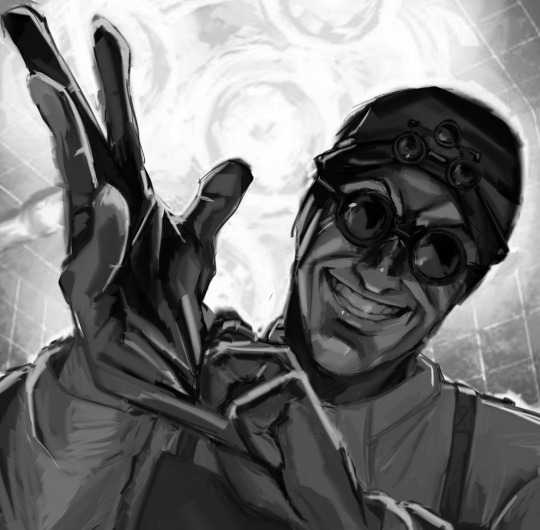
Leopold Dalton - Murkoff Scientist at Sinyala facility
Backstory and how he got to working at Murkoff:
Leopold was born in America into a relatively wealthy family in 1921, he was a very isolated child as he chose to focus more on studying and also had an unnerving aspect to him even as a child to both children his age and adults because of his weird obsession with the medical field.
He left to go study in Britian when he came of age. He got his PhD and became a certified neurologist and moved back to America for work.
Leopold became a respected neurologist studying brain trauma and memory loss, but after an experimental surgery on a patient that went wrong and resulted in a lawsuit and loss of his medical license, he was left disgraced.
He didn't have a job but still tried carrying on his work with the limited resources he had, using animals or 'volunteers' who were usually desperate people in severe poverty where necessary, keeping extensive notes on his progress and making many papers he tried to get published but had a hard time since medical journals wouldn't publish him because of his reputation. After a while he was able to find a small medical journal and they agreed to work with him, only to have his work critiqued harshly, leaving his already ruined reputation even more ruined.
Some higher ups at Murkoff however saw the paper and potential he had and offered him a position at the Sinyala facility where he was free from ethical constraints and he quickly got interested with Easterman's proposed idea of rebuilding a person's entire mind. He would develop methods of psychological torture, extremely fascinated by how fear shaped the human psyche.
Some notes about him and his personality:
He rarely speaks unless necessary but when he does his words are chosen carefully, often with veiled threats. He is very meticulous in his work, constantly checking it over and over again but refuses peer review, he takes criticism very badly. He hates rejection or failure.
He prefers working alone and if forced to work in a team will still try and work alone, refusing to show what he's doing or share ideas until he's done and finalised them, and or will attempt to take over the project entirely acting very harshly because he believes people work better under pressure. Either way in group projects he's a pain to work with.
He takes his work very seriously, usually planning his entire week out and every hour of every day, he is extremely peeved by those who aren't organised and cause him delay, although if he gets too invested in a certain aspect of work he will end up abandoning everything else he had planned until he has finished, not caring if it is affecting others.
Leopold really believes in a 'need to know' basis, not because of privacy, but because of when he shared his work in a journal before Murkoff and he got so much backlash and humiliation.
He also has a Transatlantic accent because of his time in Britian.
I'm still working on him, this is more of a dump of my main ideas for him but things may change later on.
The reference image I used for the art peice is on my TT @/rickwasps
253 notes
·
View notes
Text
After you finish this blog, you’ll be asking the million-dollar question: Why is Chief Justice John Roberts hanging out with the Deep State’s #1 color revolution architect?
Turns out the left’s favorite “Republican” has some very interesting buddies.
According to Norm Eisen—the man who practically wrote the Deep State’s playbook on color revolutions, all things anti-Trump, and lawfare in the US—he and Chief Justice John Roberts are not only good pals, but they even spent a week together in the Czech Republic. According to Norm, the two BFFs were there working on “American rule of law” issues.
Hmm…
Norm was so proud of this that he actually bragged about the trip and made it very clear that Roberts isn’t corrupt—he’s just a “close friend” who happened to fly overseas and stay at Eisen’s posh 150-room palace to collaborate on transatlantic political projects.
Really…
And no, that’s not just weird; it’s a massive conflict of interest and could also explain a lot.
As it stands now, Justice Roberts has no business presiding over any of the cases that Eisen and his army of lawfare activists are funneling through the courts, and we all know Norm is tied to so many of these weaponized cases. He should have been recusing himself from the get-go—and probably outright resigning—for the integrity of the court.
42 notes
·
View notes
Text
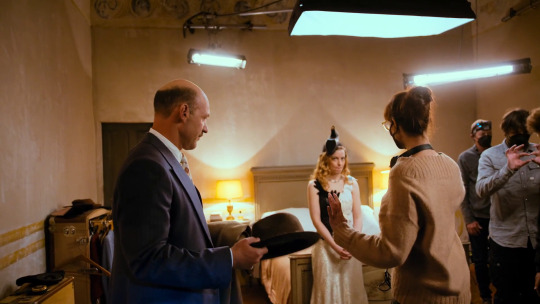
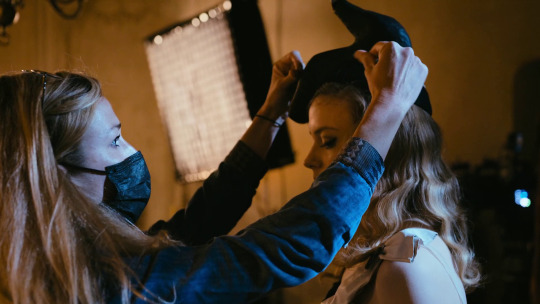

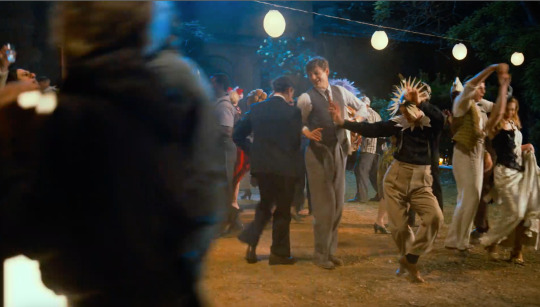

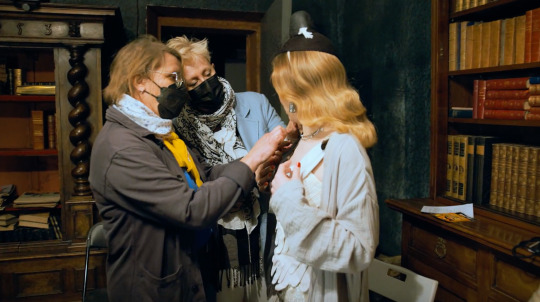
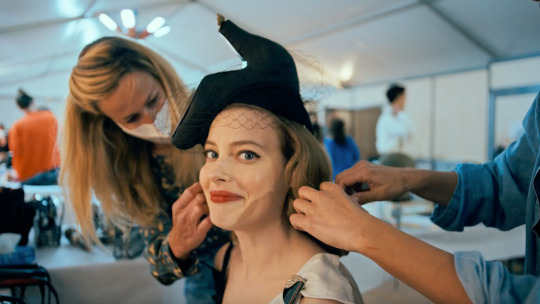
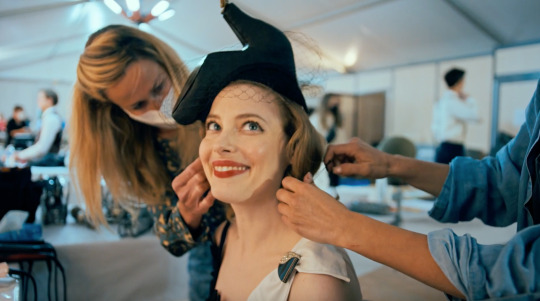
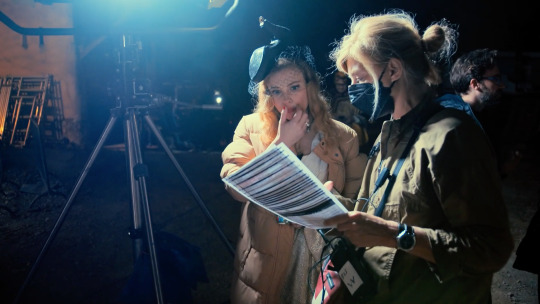

Gillian Jacobs in the Making Transatlantic featurette on Netflix
#gillian jacobs#transatlanticedit#transatlantic netflix#transatlantic 2023#project: transatlantic#role: mary jayne gold#type: screencaps#ours#transatlantic
23 notes
·
View notes
Text
Did somebody order the DCA Titanic au?!!
Summary: In the alternative XX century the most luxurious transatlantic made by man begins her maiden voyage. Two automatons and a human meet on its board and fall in love. But this ship is destined to sink.

I'm trying to get out of slump so
Yes I started writing a fic based off the plot of Titanic from 1996 the one with Leonardo dicaprio? The first chapter is here, the second will be god knows when. Hopefully soon! Enjoy!
61 notes
·
View notes
Text
After you finish this blog, you’ll be asking the million-dollar question: Why is Chief Justice John Roberts hanging out with the Deep State’s #1 color revolution architect?
Turns out the left’s favorite “Republican” has some very interesting buddies.
According to Norm Eisen—the man who practically wrote the Deep State’s playbook on color revolutions, all things anti-Trump, and lawfare in the US—he and Chief Justice John Roberts are not only good pals, but they even spent a week together in the Czech Republic. According to Norm, the two BFFs were there working on “American rule of law” issues.
Hmm…
Norm was so proud of this that he actually bragged about the trip and made it very clear that Roberts isn’t corrupt—he’s just a “close friend” who happened to fly overseas and stay at Eisen’s posh 150-room palace to collaborate on transatlantic political projects.
Really…
And no, that’s not just weird; it’s a massive conflict of interest and could also explain a lot.
As it stands now, Justice Roberts has no business presiding over any of the cases that Eisen and his army of lawfare activists are funneling through the courts, and we all know Norm is tied to so many of these weaponized cases. He should have been recusing himself from the get-go—and probably outright resigning—for the integrity of the court.
Mike Benz told the shocking full story on a recent podcast.
27 notes
·
View notes
Text

Dependence on External Economic Systems Controlled by Non-Black Entities: A Garveyite Perspective
Introduction: The Economic Chains of Neo-Colonialism
One of the greatest barriers to Black self-determination is the continued dependence on external economic systems controlled by non-Black entities. Despite having vast natural resources, a large consumer base, and an innovative workforce, Black nations and communities remain financially subordinate to foreign powers.
From a Garveyite perspective, this is not just an economic issue—it is a continuation of colonialism by economic means. Black people and nations are still:
Reliant on Western, Asian, and Arab-controlled banking and financial institutions.
Trapped in debt cycles dictated by the International Monetary Fund (IMF) and World Bank.
Forced to use foreign currencies, foreign industries, and foreign technology instead of developing their own.
If Black people do not break free from economic dependency and build self-sufficient Black-led financial systems, they will never achieve true liberation. Political freedom without economic power is an illusion.
1. The Historical Roots of Black Economic Dependency
A. Colonial Exploitation and Resource Theft
European colonizers deliberately structured African and Caribbean economies to:
Extract raw materials (gold, oil, diamonds, timber) while keeping local industries underdeveloped.
Make Black nations dependent on European trade, rather than intra-African trade.
Destroy pre-colonial African economic systems that were self-sufficient.
Example: During colonial rule, Africa supplied Europe with resources but was not allowed to develop its own industries, ensuring permanent economic dependency.
Key Takeaway: Colonialism was never just about land—it was about economic control.
B. The Role of the Transatlantic Slave Trade in Creating Black Economic Disempowerment
The enslavement of African people created:
Massive wealth for European nations while leaving Africa and the diaspora economically crippled.
A system where Black people became labourers instead of owners and investors.
A mentality of economic dependence, where Black people were conditioned to rely on white-owned economies for survival.
Example: The Atlantic slave trade generated billions in profits for Britain, France, and Portugal, while African nations were left underdeveloped and divided.
Key Takeaway: The economic foundation of the Western world was built on Black labour and Black suffering.
2. The Modern Consequences of Economic Dependency on Non-Black Entities
A. The Stranglehold of Western Financial Institutions (IMF & World Bank)
Many African and Caribbean nations rely on loans from the IMF and World Bank, leading to:
Debt traps that prevent real economic growth.
Harsh loan conditions that force privatization and foreign control over local industries.
Continued Western economic control disguised as “development aid.”
Example: The IMF forces many African nations to sell state-owned enterprises to foreign investors, making them permanently dependent on outside capital.
Key Takeaway: As long as Black nations rely on foreign loans, they will never be economically independent.
B. Dependence on Foreign Currencies and Banking Systems
Many Black nations and communities do not control their own financial infrastructure, leading to:
Reliance on Western and Chinese banks to finance projects.
Use of foreign currencies like the U.S. dollar, Euro, and CFA Franc instead of African-led financial systems.
Foreign ownership of major African and Caribbean banks.
Example: The CFA Franc, used by 14 African countries, is still controlled by the French government, meaning France dictates monetary policy for African nations.
Key Takeaway: A people who do not control their own currency are still economically colonized.
C. Exploitation by Non-Black Corporations
Because Black nations and communities do not own their industries, they remain economically weak due to:
Chinese, European, and American corporations controlling natural resources in Africa.
Black consumer dollars supporting non-Black businesses instead of Black-owned enterprises.
Foreign investors extracting wealth while Black workers receive low wages.
Example: African countries produce 70% of the world’s cocoa, yet European companies like Nestlé and Hershey make billions while African farmers live in poverty.
Key Takeaway: Resource wealth means nothing if it is controlled by foreign corporations.
3. The Political and Social Costs of Economic Dependency
A. Foreign Control Over Black Political Systems
Because Black economies are weak, foreign powers:
Interfere in African elections to protect their financial interests.
Use economic sanctions to punish Black nations that resist foreign control.
Manipulate Black leaders through financial incentives and corruption.
Example: When Ghana’s first president, Kwame Nkrumah, pushed for economic independence, the CIA and Western banks sabotaged his administration to maintain neo-colonial control.
Key Takeaway: Political independence means nothing without economic independence.
B. Black Communities Trapped in Poverty
Because Black economies are externally controlled, Black communities face:
High unemployment and reliance on white-owned businesses for jobs.
Lack of access to business loans and investment capital.
Generational poverty with little opportunity for wealth accumulation.
Example: Despite spending billions on luxury brands, Black Americans have the lowest levels of wealth accumulation compared to other racial groups due to lack of investment in Black-owned institutions.
Key Takeaway: A consumer-driven economy without wealth-building will always keep Black people at the bottom.
4. The Garveyite Solution: Building an Independent Black Economic System
A. Creating Black-Owned Banks and Financial Institutions
Black nations and communities must:
Establish Black-owned banks that provide fair loans to Black businesses.
Adopt a Pan-African currency that is not controlled by Western financial systems.
Develop local stock markets that fund Black enterprises.
Example: Marcus Garvey’s Negro Factories Corporation was an early attempt to create Black-led economic institutions, proving that financial independence is possible.
Key Takeaway: Black banking is essential for economic liberation.
B. Developing Intra-African and Pan-African Trade
Black nations must:
Trade more with each other instead of relying on Europe, China, or the U.S.
Prioritize Black-owned businesses in the global supply chain.
Invest in African-based manufacturing and technology industries.
Example: The African Continental Free Trade Area (AfCFTA) is a step toward Black economic unity, but it must be fully implemented and prioritized.
Key Takeaway: Economic power comes from self-reliance, not dependence on foreign trade partners.
C. Shifting from Consumerism to Ownership
Black individuals must:
Invest in land, businesses, and financial assets instead of luxury goods.
Support Black-owned businesses and financial institutions.
Teach financial literacy and economic strategy in Black schools and households.
Example: If Black consumers redirected just 10% of their spending toward Black businesses, it would generate billions for Black communities.
Key Takeaway: Economic liberation starts with individual and collective financial responsibility.
Conclusion: Will Black People Build Their Own Economic Future or Remain Dependent?
Marcus Garvey said:
"A race that is solely dependent upon another for its economic existence sooner or later dies."
Will Black nations continue borrowing from foreign banks or build their own financial institutions?
Will we support Black businesses, or keep enriching non-Black corporations?
Will we control our own industries, or let outsiders control our economies?
The Choice is Ours. The Time is Now.
#black history#black people#blacktumblr#black tumblr#pan africanism#black conscious#africa#black#black power#black empowering#self empowerment#self reliance#black business#Black economies#self sufficiency#buy black#marcus garvey#Garveyite#garveyism#blog
20 notes
·
View notes
Text

and though i'll miss you, recent lover, i am weak and therefore fold.
It’s Miles Edgeworth who teaches Phoenix Wright to play the piano, and it’s a fact that will always strike the both of them as funny, in retrospect. [or: seven years of transatlantic commuting and repairing broken judicial systems.]
a (late) birthday/christmas fic for my dear @franzizka !!
#ace attorney#narumitsu#wrightworth#phoenix wright#miles edgeworth#pwaa#phoenix wright ace attorney#wrightworth fic#seven year gap#00
43 notes
·
View notes
Text
The Transatlantic Railway, part 6
We’ve sorted out the logo, trains, route, and bridge, now it’s time for the most important part of the project: how on Earth are we meant to pay for this thing? At 5143km long, and based on some very rough estimates I put together bridges typically cost something on the order of £10-100 million per kilometer; giving us a cost of around £50-500 billion total. That sounds reasonable, it is at most half of the UK budget and also less than the US military budget.
#network rail#network rail polls#transatlantic railway#Newfoundland will continue to not have train service but they will pay for this nice new cantilever bridge#We really dodged a bullet with cantilever beating causeway; that one would have been REALLY expensive
25 notes
·
View notes
Text
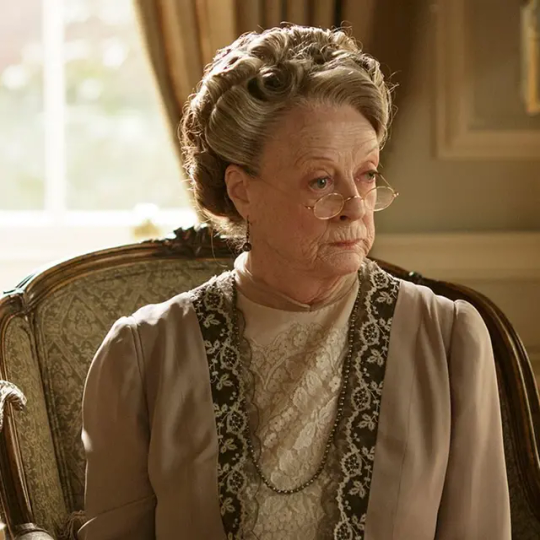
Dame Maggie Smith
A distinguished, double Oscar-winning actor whose roles ranged from Shakespeare to Harry Potter
Not many actors have made their names in revue, given definitive performances in Shakespeare and Ibsen, won two Oscars and countless theatre awards, and remained a certified box-office star for more than 60 years. But then few have been as exceptionally talented as Maggie Smith, who has died aged 89.
She was a performer whose range encompassed the high style of Restoration comedy and the sadder, suburban creations of Alan Bennett. Whatever she played, she did so with an amusing, often corrosive, edge of humour. Her comedy was fuelled by anxiety, and her instinct for the correct gesture was infallible.
The first of her Oscars came for an iconic performance in The Prime of Miss Jean Brodie (1969). Miss Brodie’s pupils are the “crème de la crème”, and her dictatorial aphorisms – “Give me a girl at an impressionable age, and she is mine for life” – disguise her intent of inculcating enthusiasm in her charges for the men she most admires, Mussolini and Franco.
But Smith’s pre-eminence became truly global with two projects towards the end of her career. She was Professor Minerva McGonagall in the eight films of the Harry Potter franchise (she referred to the role as Miss Brodie in a wizard’s hat) between 2001 and 2011. Between 2010 and 2015, in the six series of Downton Abbey on ITV television (sold to 250 territories around the world), she played the formidable and acid-tongued Dowager Countess of Grantham, Lady Violet, a woman whose heart of seeming stone was mitigated by a moral humanity and an old-fashioned, if sometimes overzealous, sense of social propriety.
Early on, one critic described Smith as having witty elbows. Another, the US director and writer Harold Clurman, said that she “thinks funny”. When Robin Phillips directed her as Rosalind in As You Like It in 1977 in Stratford, Ontario, he said that “she can respond to something that perhaps only squirrels would sense in the air. And I think that comedy, travelling around in the atmosphere, finds her.” Like Edith Evans, her great predecessor as a stylist, Smith came late to Rosalind. Bernard Levin was convinced that it was a definitive performance, and was deeply affected by the last speech: “She spoke the epilogue like a chime of golden bells. But what she looked like as she did so, I cannot tell you; for I saw it through eyes curtained with tears of joy.”
She was more taut and tuned than any other actor of her day, and this reliance on her instinct to create a performance made her reluctant to talk about acting, although she had a forensic attitude to preparation. With no time for the celebrity game, she rarely went on television chat shows – her appearance on Graham Norton’s BBC TV show in 2015 was her first such in 42 years – or gave newspaper interviews.
Her life she summed up thus: “One went to school, one wanted to act, one started to act and one’s still acting.” That was it. She first went “public”, according to her father, when, attired in pumps and tutu after a ballet lesson, she regaled a small crowd on an Oxford pavement with one of Arthur Askey’s ditties: “I’m a little fairy flower, growing wilder by the hour.”
Unlike her great friend and contemporary Judi Dench, Smith was a transatlantic star early in her career, making her Broadway debut in 1956 and joining Laurence Olivier’s National Theatre as one of the 12 original contract artists in 1963.
In 1969, after repeatedly stealing other people’s movies, with Miss Brodie she became a star in her own right. She was claiming her just place in the elite, for she had already worked with Olivier, Orson Welles and Noël Coward in the theatre, not to mention her great friend and fellow miserabilist Kenneth Williams, in West End revue. She had also created an international stir in two movies, Anthony Asquith’s The VIPs (1963) – she didn’t just steal her big scene with him, Richard Burton complained, “she committed grand larceny” – and Jack Clayton’s The Pumpkin Eater (1964), scripted by Harold Pinter from the novel by Penelope Mortimer.
Before Harry Potter, audiences associated Smith most readily with her lovelorn, heartbreaking parishioner Susan in Bed Among the Lentils, one of six television monologues in Bennett’s Talking Heads (1988). Susan was a character seething with sexual anger; the first line nearly said it all – “Geoffrey’s bad enough, but I’m glad I wasn’t married to Jesus.”
And the funniest moment in Robert Altman’s upstairs/downstairs movie Gosford Park (2001) – in some ways a template for Downton Abbey, and also written by Julian Fellowes — was a mere aside from a doleful Smith as Constance Trentham turning to a neighbour on the sofa, as Jeremy Northam as Ivor Novello took a bow for the song he had just sung. “Don’t encourage him,” she warned, archly, “he’s got a very large repertoire.” Such a moment took us right back to the National in 1964 when, as the vamp Myra Arundel in Coward’s Hay Fever, she created an unprecedented (and un-equalled) gale of laughter on the single ejaculation at the breakfast table: “This haddock is disgusting.”
Born in Ilford, Essex, she was the daughter of Margaret (nee Hutton) and Nathaniel Smith, and educated at Oxford high school for girls (the family moved to Oxford at the start of the second world war because of her father’s work as a laboratory technician). Maggie decided to be an actor, joined the Oxford Playhouse school under the tutelage of Frank Shelley in 1951 and took roles in professional and student productions.
She acted as Margaret Smith until 1956, when Equity, the actors’ union, informed her that the name was double-booked. She played Viola with the Oxford University dramatic society in 1952 – John Wood was her undergraduate Malvolio – and appeared in revues directed by Ned Sherrin. “At that time in Oxford,” said Sherrin, “if you wanted a show to be a success, you had to try and get Margaret Smith in it.”
The Sunday Times critic of the day, Harold Hobson, spotted her in a play by Michael Meyer and she was soon working with the directors Peter Hall and Peter Wood. “I didn’t think she would develop the range that she subsequently has,” said Hall, “but I did think she had star quality.”
One of her many admirers at Oxford, the writer Beverley Cross, initiated a long-term campaign to marry Smith that was only fulfilled after the end of her tempestuous 10-year relationship with the actor Robert Stephens, with whom she fell in love at the National and whom she married in 1967. This was a golden decade, as Smith played a beautiful Desdemona to Olivier’s Othello; a clever and impetuous Hilde Wangel to first Michael Redgrave, then Olivier, in Ibsen’s The Master Builder; and an irrepressibly witty and playful Beatrice opposite Stephens as Benedick in Franco Zeffirelli’s Sicilian Much Ado About Nothing, spangled in coloured lights.
Her National “service” was book-ended by two particularly wonderful performances in Restoration comedies by George Farquhar, The Recruiting Officer (1963) and The Beaux’ Stratagem (1970), both directed by William Gaskill, whom she called “simply the best teacher”. In the first, in the travesty role of Sylvia, her bubbling, playful sexuality shone through a disguise of black cork moustache and thigh-high boots on a clear stage that acquired, said Bamber Gascoigne, an air of sharpened reality, “like life on a winter’s day with frost and sun”.
In the second, her Mrs Sullen, driven frantic by boredom and shrewish by a sodden, elderly husband, was a tight-laced beanpole, graceful, swaying and tender, drawing from Ronald Bryden a splendidly phrased comparison with some Henri Rousseau-style giraffe, peering nervously down her nose with huge, liquid eyes at the smaller creatures around, nibbling off her lines fastidiously in a surprisingly tiny nasal drawl.
With Stephens, she had two sons, Chris and Toby, who both became actors. When the marriage hit the rocks in 1975, after the couple had torn strips off each other to mixed reviews in John Gielgud’s 1973 revival of Coward’s Private Lives, Smith absconded to Canada with Cross – whom she quickly married – and relaunched her career there, far from the London hurly-burly, but with access to Hollywood.
She played not just Rosalind in Stratford, Ontario, but also Lady Macbeth and Cleopatra to critical acclaim, as well as Judith Bliss in Coward’s Hay Fever and Millamant in William Congreve’s The Way of the World (this latter role she repeated triumphantly in Chichester and London in 1984, again directed by Gaskill). But her films at this time especially reinforced her status as a comedian of flair and authority, none more than Neil Simon’s California Suite (1978), in which Smith was happily partnered by Michael Caine, and won her second Oscar in the role of Diana Barrie, an actor on her way to the Oscars (where she loses).
Smith’s comic genius was increasingly refracted through tales of sadness, retreat and isolation, notably in what is very possibly her greatest screen performance, in Clayton’s The Lonely Passion of Judith Hearne (1987), based on Brian Moore’s first novel, which charts the disintegration of an alcoholic Catholic spinster at guilty odds with her own sensuality.
This tragic dimension to her comedy, was seen on stage, too, in Edna O’Brien’s Virginia (1980), a haunting portrait of Virginia Woolf; and in Bennett’s The Lady in the Van (1999), in which she was the eccentric tramp Miss Shepherd. Miss Shepherd was a former nun who had driven ambulances during blackouts in the second world war and ended up as a tolerated squatter in the playwright’s front garden. Smith brought something both demonic and celestial to this critical, ungrateful, dun-caked crone and it was impossible to imagine any other actor in the role, which she reprised, developed and explored further in Nicholas Hytner’s delightful 2015 movie based on the play.
She scored two big successes in Edward Albee’s work on the London stage in the 1990s, first in Three Tall Women (1994, the playwright’s return to form), and then in one of his best plays, A Delicate Balance (1997), in which she played alongside Eileen Atkins who, like Dench, could give Smith as good as she got.
The Dench partnership lay fallow after their early years at the Old Vic together, but these two great stars made up for lost time. They appeared together not only on stage, in David Hare’s The Breath of Life (2002), playing the wife and mistress of the same dead man, but also on film, in the Merchant-Ivory A Room With a View (1985), Zeffirelli’s Tea With Mussolini (1999) and as a pair of grey-haired sisters in Charles Dance’s debut film as a director, Ladies in Lavender (2004). Smith referred to this latter film as “The Lavender Bags”. She had a name for everyone. Vanessa Redgrave she dubbed “the Red Snapper”, while Michael Palin, with whom she made two films, was simply “the Saint”.
With Palin, she appeared in Bennett’s A Private Function (1984), directed by Malcolm Mowbray – “Moaner Mowbray” he became – in which an unlicensed pig is slaughtered in a Yorkshire village for the royal wedding celebrations of 1947. Smith was Joyce Chilvers, married to Palin, who carries on snobbishly like a Lady Macbeth of Ilkley, deciding to throw caution to the winds and have a sweet sherry, or informing her husband matter-of-factly that sexual intercourse is in order.
She had also acted with Palin in The Missionary (1982), directed by Richard Loncraine, who was responsible for the film of Ian McKellen’s Richard III (1995, in which she played a memorably rebarbative Duchess of York) and My House in Umbria (2003), a much-underrated film, adapted by Hugh Whitemore from a William Trevor novella. This last brought out the very best in her special line in glamorous whimsy and iron-clad star status under pressure. She played Emily Delahunty, a romantic novelist opening her glorious house in Umbria to her three fellow survivors in a bomb blast on a train to Milan. One of these was played by Ronnie Barker, who had been at architectural college with Smith’s two brothers and had left them to join her at the Oxford Playhouse. Delahunty finds her new metier as an adoptive parent to a little orphaned American girl.
She was Mother Superior in the very popular Sister Act (1992) and its sequel, and her recent films included a “funny turn” as a disruptive housekeeper in Keeping Mum (2005), a vintage portrait of old age revisited by the past in Stephen Poliakoff’s Capturing Mary (on television in 2007) and as a solicitous grandmother of a boy uncovering a ghost story in Fellowes’s From Time to Time (2009).
As this latter film was released she confirmed that she had been diagnosed with breast cancer and had undergone an intensive course of chemotherapy, but had been given the all-clear – only to be struck down by a painful attack of shingles, a typical Maggie Smith example of good news never coming unadulterated with a bit of bad.
Her stage appearance as the title character in Albee’s The Lady from Dubuque at the Theatre Royal, Haymarket, in 2007 was, ironically, about death from cancer. She returned to the stage for the last time in 2019, as Brunhilde Pomsel in Christopher Hampton’s one-woman play A German Life, at the Bridge theatre, London.
Cross, who was a real rock, and helped protect her from the outside world, died in 1998. But Smith picked herself up, and went on to perform as sensationally and beguilingly as she had done all her life, including memorable appearances in the Best Exotic Marigold Hotel films (2011 and 2015) and two Downton Abbey movie spin-offs (2019 and 2022). Her final film role was in The Miracle Club (2023), co-starring Kathy Bates and Laura Linney.
She had been made CBE in 1970 and a dame in 1990, and in 2014 she was made a Companion of Honour. Her pleasure would have been laced with mild incredulity. A world without Smith recoiling from it in mock horror, and real distaste, will never seem the same again.
She is survived by Chris and Toby, and by five grandchildren.
🔔 Maggie Smith (Margaret Natalie Smith), actor, born 28 December 1934; died 27 September 2024
Daily inspiration. Discover more photos at Just for Books…?
47 notes
·
View notes